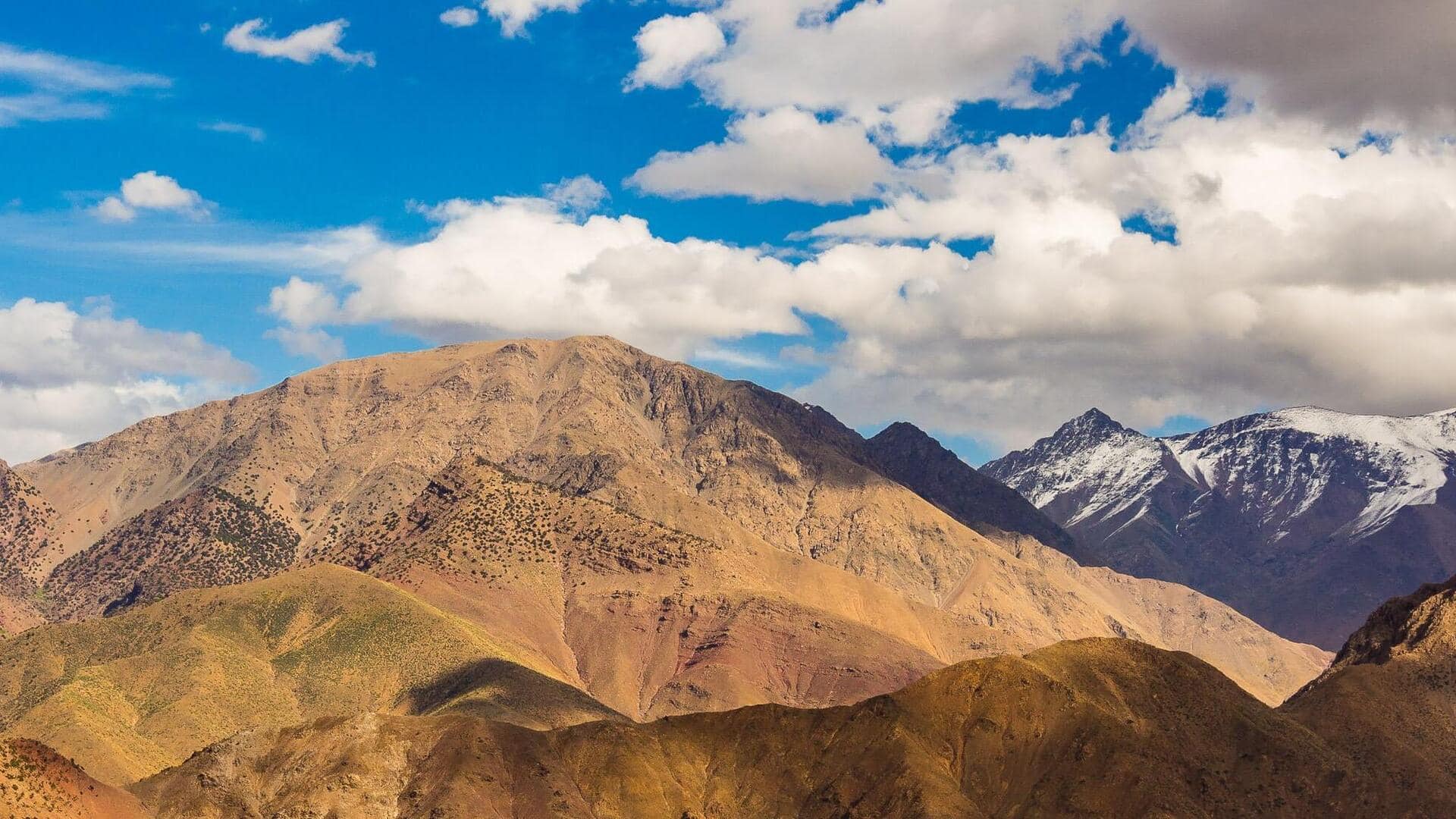
Your guide to hiking in Morocco's Atlas Mountains
What's the story
The Atlas Mountains in Morocco provide an amazing hiking experience for those looking to explore untouched trails. This mountain range, which stretches over 2,500 kilometers, offers diverse landscapes from lush valleys to rocky peaks. For seasoned hikers, the Atlas Mountains are a paradise of challenging routes and breathtaking views. Here are some insights into exploring these trails, including tips on preparation and what to expect on your adventure.
Trail selection
Choosing the right trail
Selecting the right trail is essential for a successful hike in the Atlas Mountains. While some trails are suitable for beginners, others are more suited for experienced hikers with technical skills. Researching trail difficulty, length, and elevation gain can help you choose a route that matches your fitness level and experience. Popular trails include Toubkal Circuit and M'Goun Massif, both offering unique challenges and stunning scenery.
Gear preparation
Essential gear for hiking
Proper gear is essential for hiking in the Atlas Mountains. Comfortable hiking boots are a must to tackle rocky terrain, while layered clothing helps you adjust to changing weather conditions. A reliable backpack with essentials like water bottles, snacks, a first-aid kit, and navigation tools is crucial. Don't forget sun protection items like hats and sunscreen to shield yourself from intense sunlight at higher altitudes.
Weather awareness
Understanding weather patterns
Weather patterns in the Atlas Mountains can vary greatly depending on the season. Summer months provide favorable conditions with mild temperatures, making it ideal for hiking. However, winter brings snowfall that may block certain trails, making them inaccessible or dangerous. Before planning your hike, check weather forecasts regularly to ensure safety during your journey.
Cultural interaction
Engaging with local culture
Interacting with local communities enriches your hiking experience in the Atlas Mountains. The Berber villages along many trails offer insights into traditional ways of life that have remained unchanged for centuries. Respecting local customs by learning basic phrases or participating in cultural activities can enhance mutual understanding between hikers and residents.